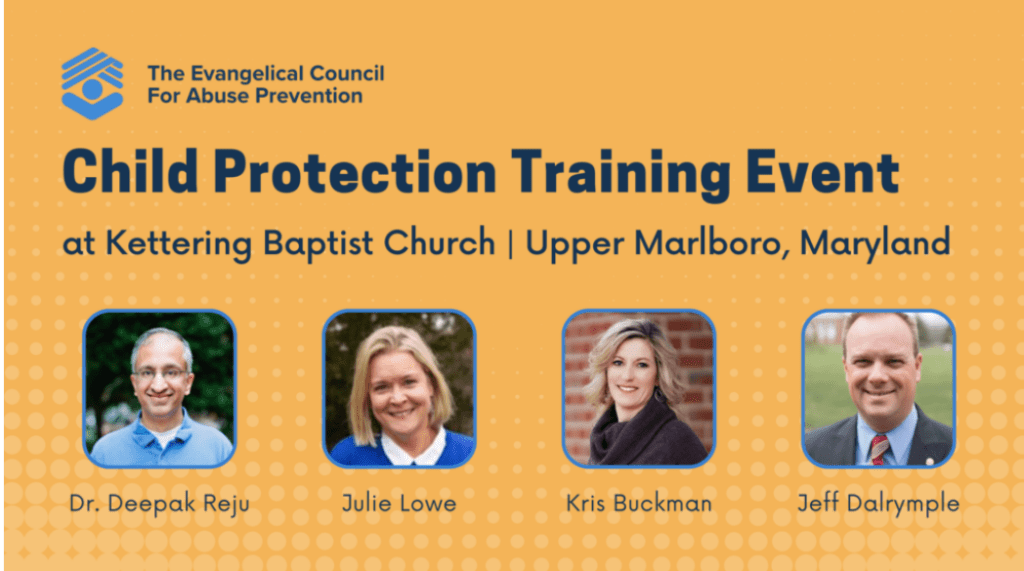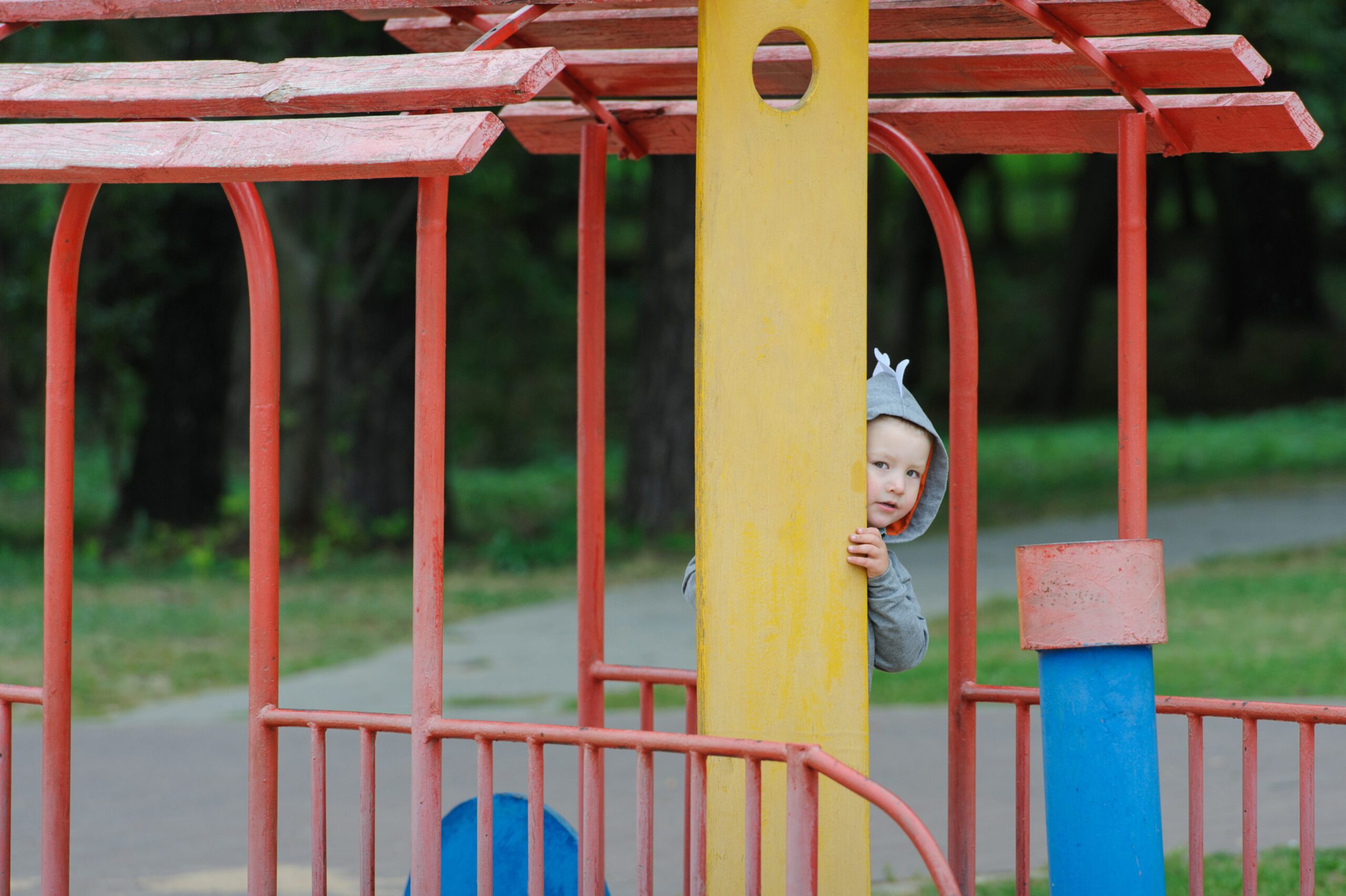April is National Child Abuse Prevention Month. At the BCM/D, we are committed to helping every church become a safe place for children and youth. We offer many resources to help your church prevent and respond to sexual abuse within the church. We encourage you to visit the Pathways page on our website to learn more about how you can reduce the risk of sexual abuse within the church. This article is the second in a series of five. Read last week’s article here.
I led children’s ministry at a small church for many years before I participated in an hour-and-a-half sexual abuse awareness training that changed everything. I simply didn’t know what I didn’t know. I was not aware of the types of sexual offenders that target churches. I was not aware of the most dangerous type of offenders’ grooming behaviors, habits, and characteristics. I was not aware that nearly 40% of abuse to children is done by other children, not adults. I was not aware of how to handle an abuse disclosure by a child should that ever happen. And I had thought that I was “lucky” that there had never been an incident at my church. That, too, changed when I learned that over 65% of children do not disclose their abuse until they are adults…IF they ever disclose it. So, in reality, something could very well have happened in my church; I just never knew about it. I didn’t know what I didn’t know.
Sexual abuse awareness training is a foundational component of onboarding new staff and volunteers who will have access to children, youth, and vulnerable adults. If the above paragraph didn’t do it for you, here are three reasons why all church staff and volunteers should participate in sexual abuse awareness training.
1. It reinforces a culture of zero tolerance for abuse. The more trained eyes you have, the safer kids will be. If every staff member and volunteer are educated in what symptoms of abuse to watch for, signs that tell us something isn’t right, or to notice when someone may be pushing boundaries with a child, it empowers us to take steps to move into action to protect the child. Knowing the pattern of grooming among predatory offenders allows everyone around to be on the lookout for red flags. Once trained, staff and volunteers know exactly what to do, whom to call, and what to say. The more people at your church that are trained, the more eyes and ears you have looking out for the safety of the children entrusted to you in your ministries. Being trained in sexual abuse awareness could help someone save a child from a lifetime of trauma.
2. The requirement alone can detract predators. When your church implements a policy that each staff member and volunteer participate in sexual abuse awareness training, that speaks volumes to someone who may target your church to gain access to children, youth, and vulnerable people. When predatory offenders learn that every staff member and volunteer they will be working with at your church is trained to spot possible grooming characteristics and learn that offenders first groom the adults who have access to children, they will more than likely remove themselves from the candidacy of volunteering at your church. Having this requirement is a clear signal to everyone that your church takes the safety of children seriously.
3. It ensures your well-written policies and procedures are followed. Because of what’s learned in abuse awareness training, we can craft policies and procedures that deflect certain habits and behaviors of offenders. Once staff and volunteers are educated in understanding the risk, they are more likely to understand why your policies and procedures are put in place and are more apt to adhere to them. Want to ensure those who serve at your church actually follow your bathroom policy? Want volunteers and staff to understand why you have a two-adult rule or why you don’t allow children over the age of five to sit on their laps? Train them to understand the risk; they’ll quickly understand why and you’ll see compliance. In fact, you’ll begin to see staff and volunteers double-thinking scenarios in which they may have previously just done what they thought was right or because that’s what they’ve always done. You’ll also notice staff and volunteers holding each other accountable to those policies and procedures. Again, more eyes and ears looking out for the children in your care.
When all staff and volunteers are trained to recognize and prevent abuse, you will see a change in the culture of your church. I always thought our ministries were run well, and they were! However, now I know we have a ministry that is run well and run safely. I notice volunteers speaking up if they see something. I notice volunteers considering the safety of kids in all of our activities, letting us know when they need an extra staff member for an activity. I notice volunteers circling the playground when the kids are outside, keeping an eye out, especially in those hard-to-see areas, for kids who may be obstructed from view, making sure there is no inappropriate behavior happening. I’ve even heard them verbally sharing our policies with parents to ensure their child’s safety is our utmost priority. I attribute all of these actions to our requirement for sexual abuse awareness training. This training, coupled with a thorough screening process, can significantly reduce the risk of sexual abuse in your church. For more information on where to access sexual abuse training for your church, please visit our Pathways page or reach out to me, at [email protected].
You’re invited to learn more about abuse and prevention next month at the Evangelical Council for Abuse‘s training event on May 24 at Kettering Baptist Church in Upper Marlboro. Reserve your seat today!

Feature photo: Adobe Images
 Kris Buckman serves as BCM/D’s Children’s & Youth Ministry Consultant. She also serves on the BCM/D Sexual Abuse Task Force and the Southern Baptist Convention’s Abuse Reform Implementation Task Force (ARITF).
Kris Buckman serves as BCM/D’s Children’s & Youth Ministry Consultant. She also serves on the BCM/D Sexual Abuse Task Force and the Southern Baptist Convention’s Abuse Reform Implementation Task Force (ARITF).

